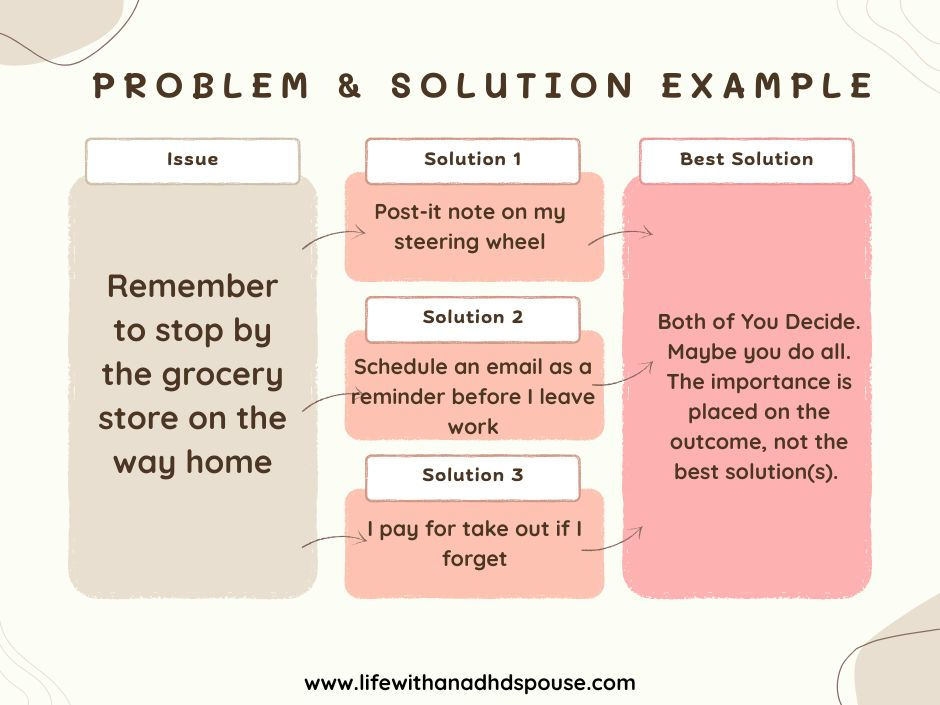How common is it for couples affected by ADHD have problems in their marriage?
- Alice S

- Oct 7, 2025
- 3 min read
Updated: Oct 15, 2025

Q: How common is it for couples affected by ADHD have problems in their marriage?
A: If you’re wondering whether what you’re going through is unusual, the short answer is: no, you’re not alone. Many couples affected by ADHD face similar challenges, and even couples without ADHD in the mix struggle with connection, communication, and intimacy.
In fact, research reflects this reality clearly. According to a survey conducted by ADDitude Magazine, 51% of non-ADHD partners said that ADHD put a significant damper on intimacy with their significant other(1). That’s more than half—showing just how common these struggles really are among ADHD-affected couples.
Even beyond ADHD-specific relationships, challenges with intimacy are widespread. A separate OnePoll survey for K-Y’s launch of the K-Y Desire Darkroom experience found that 29% of respondents who have been with their partner for at least five years felt they could use more intimacy in their relationship. In addition, nearly one in five (18%) admitted that being physically intimate with their partner has been a low or non-existent priority over the past year(2).
So, if you’re struggling with connection or closeness, know that it’s not just an “ADHD marriage problem.” It’s a human relationship pattern—ADHD simply tends to magnify it.
Common patterns that I’ve seen—both in my own marriage and in conversations with other non-ADHD partners—tend to follow familiar paths.
Take something as simple as picking up groceries. For the non-ADHD partner, it can feel like a straightforward task. For the ADHD partner, that same task might involve a maze of distractions, time-blindness, or forgotten details. What looks like a simple “to-do” often becomes a completely different experience for each person—and that difference creates the disconnect that wears down both sides over time.
Here are the common responses each partner feels and acts as number of requests increases:

For the non-ADHD partner: Ask nicely → remind repeatedly → demand that it gets done ASAP → insist it be done “the right way.”

For the ADHD partner: Agree to do it (wanting to make their partner happy) → feel annoyed or pressured by reminders → feel ashamed or worried about not doing it right or forgetting to do it→ give up trying because they expect criticism either way (so why try).
Over time, these cycles can become deeply ingrained. What starts as a simple task ends up triggering frustration, shame, and resentment for both partners—without either person intending harm.
The good news is, many of these patterns can be understood and changed.
Education is absolutely key, but it goes beyond simply understanding ADHD.
It’s about learning to connect the dots between ADHD symptoms and how they show up in your relationship—and then adjusting your approach and expectations so both partners feel like winners. For the non-ADHD partner, that might mean finding solutions that help your partner complete tasks to a mutually agreeable standard without having to be the reminder. For the ADHD partner, it means understanding what trips them up on the task and finding solutions that help them get it done.
Think of it this way: if your partner doesn’t like broccoli, you wouldn’t keep serving it plain at every meal and expect them to eat it. Instead, you might try different approaches—add butter, include it in a vegetable soup, or mix it with something they enjoy. The same principle applies to tasks. Repeating the same request over and over (even with good intentions) usually won’t work. But if you shift your approach—finding a way together to frame the task or adjust it so it’s easier for them to complete—you’re far more likely to see a successful outcome.

Your struggles are real—many of them are also common, and solvable—if you’re willing to put in the time and effort to work on them. With the right mindset and an open mind, you and your partner can move from frustration and misunderstanding to compassion and cooperation.
Once couples learn to see ADHD as a shared dynamic rather than a personal flaw, everything begins to change. With understanding, communication tools, and ADHD-informed strategies, it’s possible to rebuild connection, trust, and teamwork.
If you’re ready to explore different approaches but need a little help figuring out what those approaches are, I’m happy to support you. It’s my way of helping others, and there’s no cost to you.
(1) Source: How ADHD Impacts Sex and Marriage, ADDitude Magazine, updated May 9, 2025.
(2) Love Isn’t Enough: 72% of Couples Lack Daily Intimacy (February 9, 2024). StudyFinds. Retrieved from https://studyfinds.org/love-lack-daily-intimacy/
.png)



Comments